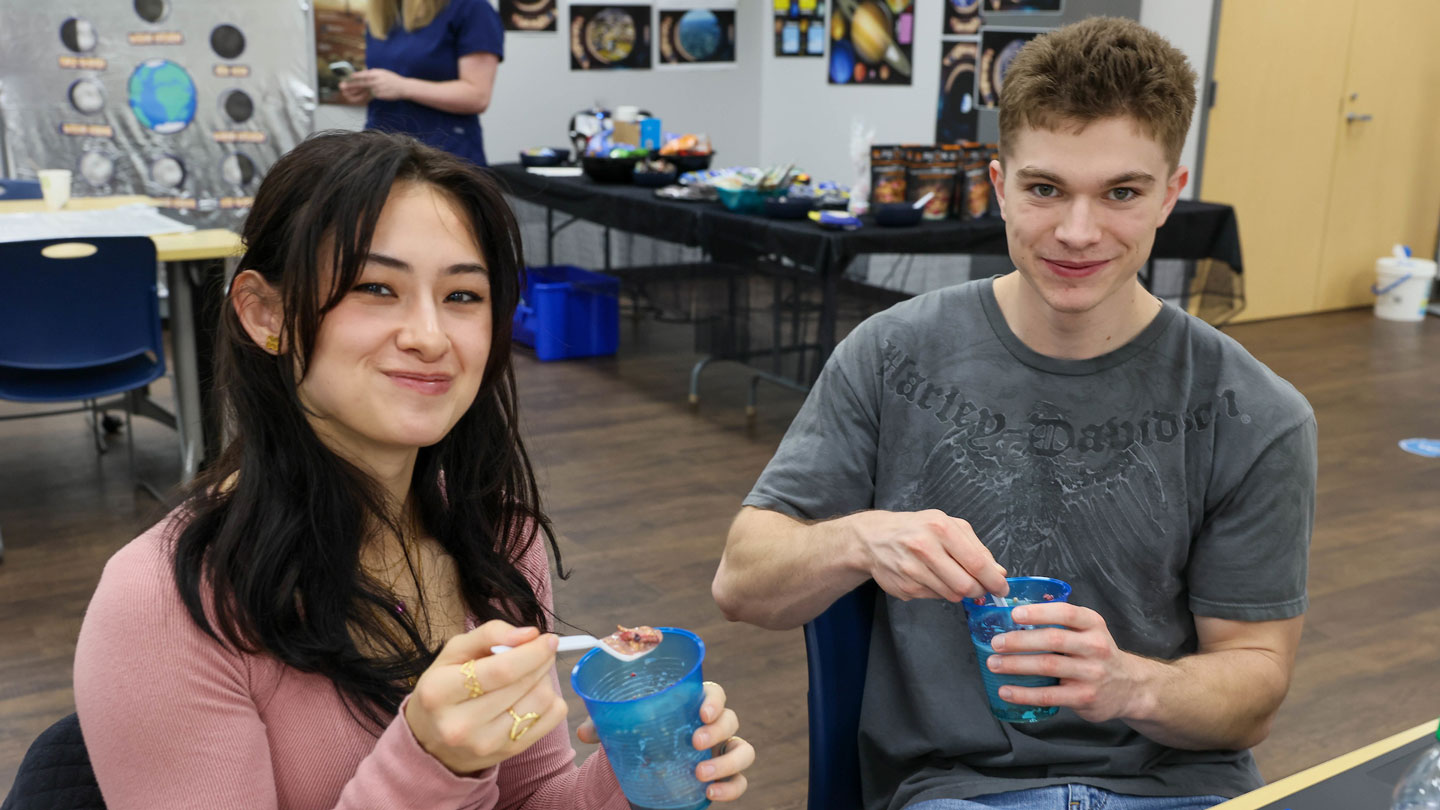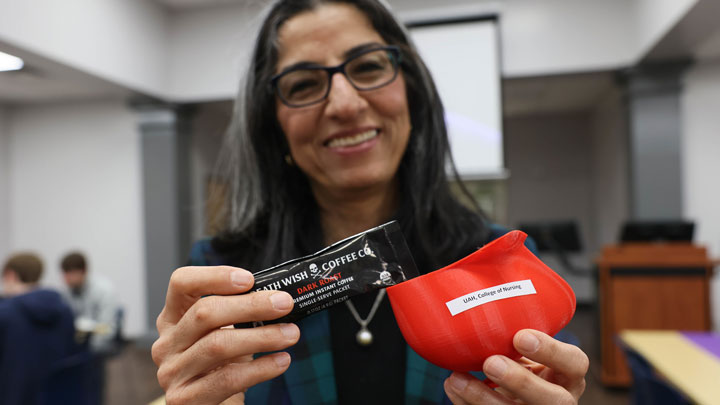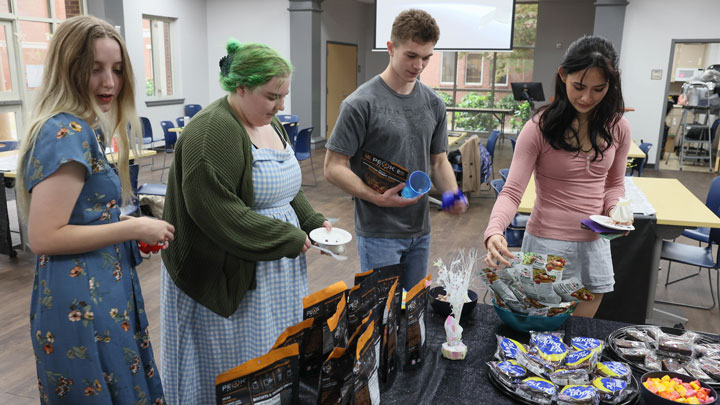
Health in Space class samples astronaut breakfast fare at The University of Alabama in Huntsville (UAH).
Michael Mercier | UAH
To demonstrate the collaborative skills necessary to tackle the practical challenges of living in space, students at The University of Alabama in Huntsville (UAH) are taking a multidisciplinary course recently showcased by an event called ‘Astronaut Breakfast Day.’ The activity was hosted by the College of Nursing at UAH, a part of The University of Alabama System, where participants met to sample genuine astronaut fare. The gathering was designed to highlight ways to meet the nutritional needs of space explorers through interdisciplinary solutions and expertise.
“Today’s event serves as an example of how health and wellness are prioritized in space exploration,” explains Dr. Azita Amiri, a professor and associate dean for research in the College of Nursing. “Astronaut Breakfast Day is a fantastic opportunity to connect with the multidisciplinary goals of our Health in Space course. The breakfast highlights the importance of nutrition for astronauts during space missions, allowing students to explore the intersection of health, food science and aerospace.”

Dr. Azita Amiri, professor and associate dean for research, UAH College of Nursing, is ready to try astronaut coffee.
Michael Mercier | UAH
The students sampled a number of genuine astronaut breakfast staples, such as dehydrated packets of sausage, biscuits and gravy, treats like blueberry muffins and even astronaut coffee served in special zero-gravity mugs. The event also featured demonstrations of off-world preparation processes for the food.
The program was pioneered by Dr. Pam O’Neal, a professor emeritus in the College of Nursing. “Several decades ago, due to UAH’s strategic location near NASA, the College of Nursing established a unique committee called Nursing Space and Life Sciences, recognizing the special intersection of the nursing and aerospace fields,” Amiri explains. “We updated the committee's name to the Nursing and Aerospace Committee to better reflect our focus.”
Amiri has been chair of the committee for several years and involved in various initiatives associated with the program, including the development of the honors seminar course. HON 301-H3 examines the various factors affecting human health in space, integrating nursing, exercise kinesiology, psychology, biology and engineering to understand the physical and mental challenges faced by humans beyond Earth's atmosphere and representative of the cultures and countries they originate from.

Michael Mercier | UAH
“We officially launched the course in Spring 2022, and each time it’s offered, we welcome around 15 students from diverse disciplines, including nursing, arts and humanities, as well as science and engineering, to foster a multidisciplinary learning environment,” Amiri says. “The main goals in designing the class to be interdisciplinary were to enhance the educational experience and equip students with skills necessary for addressing the complexities of health in space. By bringing together students from diverse disciplines, we foster teamwork and collaboration, helping students develop essential skills crucial for tackling multifaceted challenges in space exploration.”
The effort aims to provide students with a comprehensive view of various fields, such as aerospace engineering, life sciences and public health, in order to offer a holistic approach to meeting the needs of space missions and astronaut well-being.
“The breakfast allows students to engage in a real-world application of the course material, demonstrating the practical implications of what they are learning about astronaut health,” Amiri concludes. “Students can brainstorm and share innovative ideas on improving meal planning and preparation for long-duration space missions, aligning with our goal of fostering innovative problem-solving skills. Interdisciplinary learning encourages creative thinking by exposing students to a range of perspectives and methodologies.”